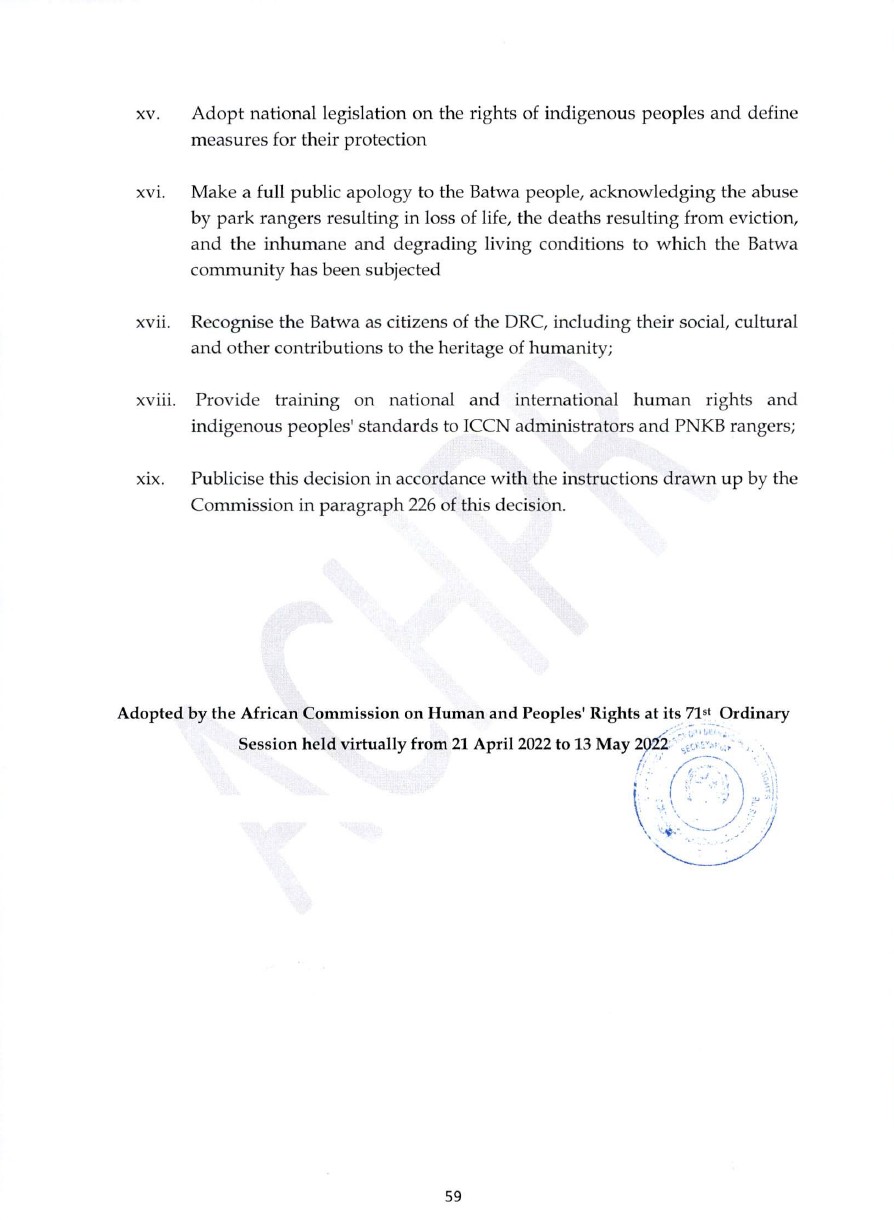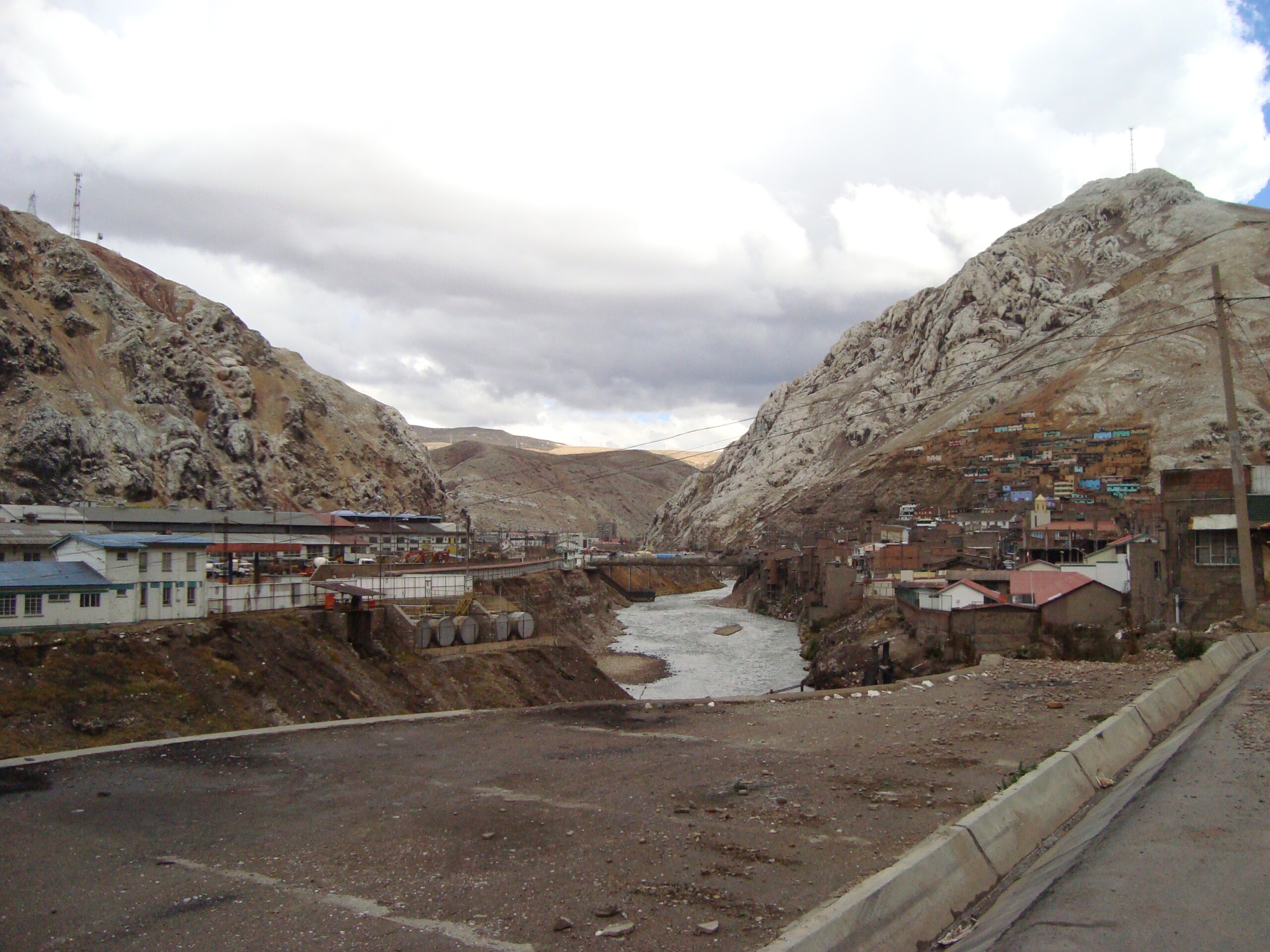Summary
In November 1970 and again in July 1975, the Congolese government passed laws establishing the Kahuzi-Biega National Park (PNKB) area as a park and as a result forcibly evicting the indigenous Batwa communities living there. The Batwa are recognized by other indigenous communities in DRC as the original inhabitants and the stewards of the forests within the PNKB. Prior to 1970, the Batwa had continued to live on the land previously established as the Mount Kahuzi Zoological and Forestry Reserve in July 1937, something that had allowed them to continue their traditional lifestyles. However, the decrees in 1970 and 1975 dramatically displaced the Batwa communities. The Batwa were not consulted or compensated before or after their evictions.
Since 1975, the Batwa communities have lived as vulnerable and marginalized communities in makeshift camps on the outskirts of other Bantu villages. They have been unable to carry out their roles as traditional stewards of the land and forests, and have suffered from high rates of malnutrition, mortality, and diseases. This is compounded by the discrimination they face from other ethnic groups in the DRC. In the complaint, they estimate that the number of Batwa has fallen from 6,000 to 3,000 since their eviction from the PNKB. In 2022, Minority Rights Group documented a campaign of organized violence against Batwa who had attempted to return to their lands in 2018, which led to the death of at least 20 members, a group rape incident of at least 15 members, and continued forced displacement of hundreds of Batwa.
In 2010, after an unsuccessful court action in 2008, the Batwa initiated legal action against the Congolese government and the Congolese Institute for the Conservation of Nature (ICCN) in District Court, alleging that their arbitrary eviction from their lands without compensation was a violation of the national legislation and Constitution of the DRC. The complaint also relied on international law, particularly Article 1 of the International Covenant on Civil and Political Rights, Article 1 of the International Covenant on Economic, Social and Cultural Rights, and Article 21 of the African Charter, all of which have been ratified by the DRC. The District Court dismissed the complaint for lack of jurisdiction, a decision that was affirmed by the Court of Appeal. In December 2013, the Batwa appealed to the Supreme Court of Kinshasa, which is still pending at this time.
The present case, brought by the Minority Rights Group and Environnement, Ressources Naturelles et Developpement (ERND) on behalf of the Batwa community, was filed at the African Commission in 2015 alleging violations of Articles 1, 2, 4, 8, 14, 16, 17, 21, 22, and 24 of the African Charter.
In its decision, the African Commission on Human and Peoples’ Rights found that the Democratic Republic of Congo government had violated 11 cited articles of the African Charter, including the right to life, the right to property, the right to natural resources, the right to development, and the right to religion and culture. The Commission ruled that the DRC must 1) grant the Batwa collective land rights over their traditional territories within the PNKB; 2) issue a full apology to the Batwa for the abuses caused over decades by the park rangers, as well as the deaths and inhumane living conditions perpetuated by other state authorities; 3) legally recognize the Batwa as full citizens of the DRC; 4) ensure the departure of non-Batwa people from Batwa land; and 5) pay reparations to the Batwa and ensure that they benefit from the revenues of the national park and forest as beneficiaries of a community development fund.


